Whoever Fears the Sea
R150South African scriptwriter Paul Waterson is in Kenya to carry out research for a documentary film. It’s October 2001, and his relationship has come to an unexpected end.
Showing 1809–1824 of 1858 results
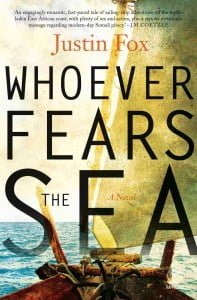
South African scriptwriter Paul Waterson is in Kenya to carry out research for a documentary film. It’s October 2001, and his relationship has come to an unexpected end.

Wendy Lesser’s extraordinary alertness, intelligence, and curiosity have made her one of America’s most significant cultural critics,” writes Stephen Greenblatt. In Why I Read, Lesser draws on a lifetime of pleasure reading and decades of editing one of the most distinguished literary magazines in the country, The Threepenny Review, to describe her love of literature.
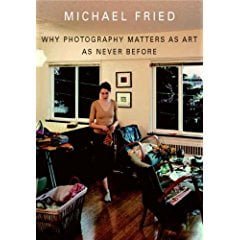 Out of stock
Out of stockFrom the late 1970s onward, serious art photography began to be made at large scale and for the wall. Michael Fried argues that this immediately compelled photographers to grapple with issues centering on the relationship between the photograph and the viewer standing before it that until then had been the province only of painting.

In December 1894, Captain Alfred Dreyfus, a brilliant French artillery officer and a Jew of Alsatian descent, was court-martialed for selling secrets to the German military attaché in Paris based on perjured testimony and trumped-up evidence.
 Out of stock
Out of stockWilliam Kentridge: Anything Is Possible gives viewers an intimate look into the mind and creative process of William Kentdridge, the South African artist whose acclaimed charcoal drawings, animations, video installations, shadow plays, mechanical puppets, tapestries, sculptures, live performance pieces, and operas have made him one of the most dynamic and exciting contemporary artists working today.

Tate British Artists Series: Introduction to William Blake.
More than a century-and-a-half after his death, William Blake remains a figure. Equally gifted as poet and painter; he produced work as arresting for its beauty as for its strangeness.

More than 150 years after his death, William Blake (1757–1827) remains a cryptic and controversial figure. Equally gifted as a poet and a painter, he produced work that is as arresting for its beauty as for its strangeness. With this fresh examination of Blake’s unfolding career, William Vaughan presents an artist with a radical and utterly individual vision, who was deeply concerned with the social, religious, and political issues of his age.
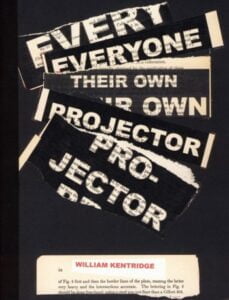
Kentridge made roughly one hundred drawings for the book, using collage on text pages torn from books he has cannibalized for years, such as Mrs Beaton’s Book of Household Remedies, and the French Larousse Encyclopaedia, favouring ink and brush drawing with crayon on the text pages.

This, the first major monograph on the widely acclaimed South African artist William Kentridge brings together nearly two hundred of his works made between 1989 and 2012. Exploring Kentridge’s diverse expressions across a wide range of media, from film and video to sculpture, design, drawing, and printmaking, the book is lavishly illustrated with more than 2,000 images.
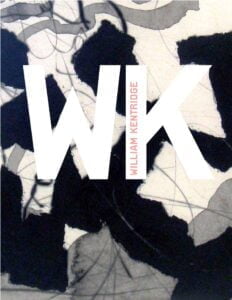
“It’s not a mistake to see a shape in the cloud. That’s what it is to be alive with your eyes open; to be constantly, promiscuously, putting things together”. – William Kentridge.

“It’s not a mistake to see a shape in the cloud. That’s what it is to be alive with your eyes open; to be constantly, promiscuously, putting things together”. – William Kentridge.
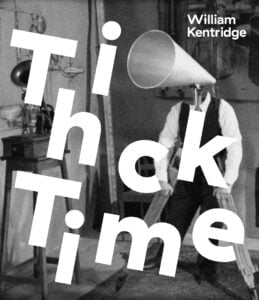
William Kentridge: Thick Time undertakes an overview of the artist’s recent works, focusing on a sequence of five key pieces dating from 2003 to 2015. These encompass three immersive audiovisual installations, including The Refusal of Time, selected works on paper, and ideas for theatre and opera design.
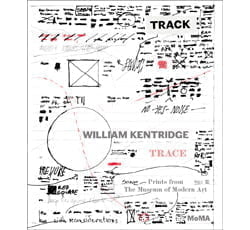
This visually compelling publication highlights The Museum of Modern Art’s unparalleled collection of prints and books by William Kentridge – nearly fifty works spanning the past three decades. The book also features a succession of artistic interventions made by Kentridge especially for the occasion. Kentridge’s practice brings together drawing, film animation, books, sculpture and performance.
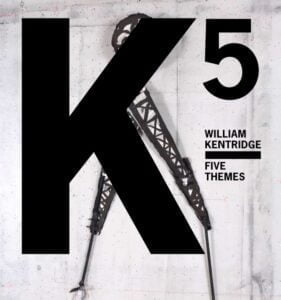
With a searing body of work ranging from films and drawings to prints, sculptures, and theatrical productions, William Kentridge has offered a fresh and distinctive perspective on the contemporary social landscape, with a particular emphasis on his native South Africa.
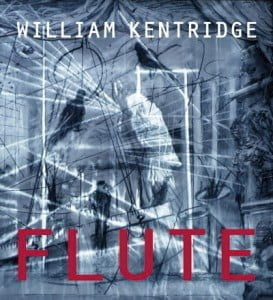
In 2005, William Kentridge’s production of The Magic Flute premiered at La Monnaie in Brussels. It went on to venues in France, Italy, Israel and the United States to critical acclaim. In September 2007 it opened in Cape Town and Johannesburg.
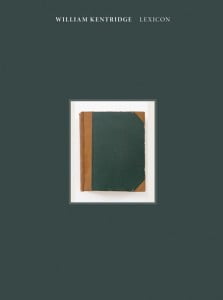
Lexicon is a facsimile cloth edition of an antiquarian Latin-Greek dictionary which William Kentridge has embellished with black ink drawings of what might seem at first to be animal silhouettes.
No products in the basket.